1949-1952 Revival on the Island of Lewis (Hebrides)
This revival commenced on the Scottish island of Lewis in the village of Barvas and spread to other islands in the region. This revival has several different names. We have used the name “Revival on the Island of Lewis”. Another common name for this revival is the “Hebridean Revival,” as Lewis is part of a larger grouping of Scottish islands named the Hebrides.


Conditions Prior to the Revival
►According to testimonies of people present prior to the revival, they confessed that the churches were dead and that they were in a spiritual winter.
►Legalism was extreme and the young people wanted nothing to do with the Church. Some of the churches had no young people attending.
►The people on the island had a “form of godliness” in that prayer and Bible reading in homes was conducted every morning, but it was carried out as a duty; it was a tradition of those who were converted as well as those who were not.
►In the schools the children learned Bible stories from their unconverted teachers. Students were also taught the short version of the Westminster Catechism, as well as how to sing many of the Psalms. They were also required to memorize the Ten Commandments and many other selected passages of scripture—but there was no life in it. It was all formality and tradition.
Extraordinary Prayer
Beginning in November of 1949, two sisters, Peggy and Christine Smith, 84 and 82 years old–Peggy completely blind, and Christine bent over with arthritis—were burdened due to the depressed spiritual state in their Barvas village church. They sensed the Lord speaking to them: “I will pour water on the thirsty land, and streams on the dry ground.” (Isaiah 44:3).
This led them to pray in their small cottage two to three nights per week, from 10 p.m. till 3 a.m. After several weeks of praying like this, Peggy had a vision of her church being crowded with young people, and an unknown minister preaching from the pulpit.
Peggy then sent for their minister, Rev. James Murray MacKay. She told him they sensed the Lord was going to send a revival and that he must get his church leaders and spend every Tuesday and Friday night in prayer, and that they would pray simultaneously in their cottage.
MacKay respected the sister’s spiritual judgement and the call to pray was made. There was also a group of pastors in the region that met to discuss the spiritual declension on the island. Together they composed a resolution to be read on a certain Sunday in all the Free Churches of Scotland. It was an appeal for all believers to “view with concern the barrenness of the parishes” so they would “turn again unto the Lord whom we have so grieved with our waywardness and iniquities.” It also involved asking the people to pray that the villages would be “visited with a spirit of repentance.” Many of the believers in the Hebrides immediately went to their knees, petitioning God to visit the islands.
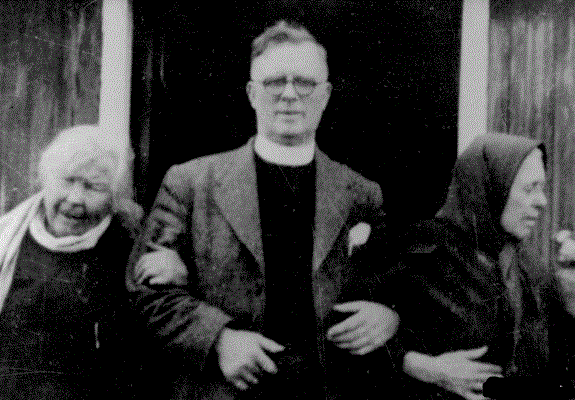
Prayer warriors Peggy and Christine Smith with evangelist Duncan Campbell
The announcement was also placed in two newspapers, the Stornoway Gazette and West Coast Advisor on December 9, 1949.
►Following that proclamation, two times per week, Peggy and Christine Smith prayed in their cottage from 10 p.m. till 3 a.m., while the ministers and others prayed in a barn-like structure and in other locations. They prayed this way for weeks .
►Prayer was conducted in unheated buildings—in the middle of the winter. That was a sign of desperation.
►People all over the islands had the sense that God was telling them to “ask Me for revival.” This was a divinely orchestrated movement to petition God for revival.

What Happened
After several weeks of praying like that, one evening, while the minister and church leaders (including both men and women) were praying in a barn, a young deacon read from Psalm 24:3-5.
Who shall ascend into the hill of the Lord?
or who shall stand in his holy place?
He that hath clean hands,
and a pure heart;
who hath not lifted up his soul unto vanity,
nor sworn deceitfully.
He shall receive the blessing from the Lord,
and righteousness from the God of his salvation.
When he closed his Bible he looked at the minister and the others and said,
“It seems to me to be so much humbug to be praying as we are praying, to be waiting as we are waiting, if we ourselves are not rightly related to God.”
He then prayed, “God, are my hands clean? Is my heart pure?”
Immediately, at around 3 a.m., the presence of God gripped every person present. It wasn’t only them that sensed this, for the entire village and larger surrounding area sensed that same awareness of God. The following day everyone was absorbed by the reality of eternal things.
That group of intercessors left the barn at that early hour and found men and women kneeling along the roads, crying out to God for mercy. Every home had lights on in it, as no one could sleep with the awareness of God being so overwhelming.
Peggy Smith then sent for her minister, Rev. MacKay, and told him that he was supposed to invite someone to come and preach during the revival, but she didn’t know who he was. She only saw an unfamiliar face in a vision.
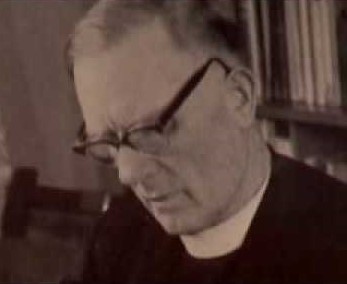
Duncan Campbell
Through another contact, MacKay contacted Duncan Campbell and asked him to come. Campbell was at that time in the midst of an evangelistic campaign on the island of Skye, with conversions taking place. When he received the letter inviting him to the Barvas Free Church on the island of Lewis for 10 days, he replied that he couldn’t make it because he was scheduled to be a speaker at the convention on Skye.
Upon receiving Campbell’s return letter informing him that he couldn’t come, Rev. MacKay regretfully told Peggy Smith the news. Peggy Smith responded; “Mr. MacKay, that is what man is saying. But God has said something else and he will be here within a fortnight” (14 days).
Due to a change of events, the convention on Skye was cancelled and Campbell arrived on the island of Lewis in ten days. When Campbell arrived at the pier he was greeted by the minister and two church leaders. The minister asked him to go straight to the church and address the congregation at 9 p.m.
Duncan Campbell’s First Night at the Church in Barvas
Three hundred people were gathered at the church when Campbell arrived. After preaching a sermon, nothing significant happened. There was an awareness of God’s presence, more powerful than what Campbell had experienced since a revival he was involved with in 1921, but nothing extraordinary beyond that, and the service was closed at approximately 10:45 p.m.
With everyone having departed from the church, and Duncan Campbell and a young deacon being the only ones left, that young man, knowing God was going to do something much more that night, in the middle of the aisle, said to Campbell: “Nothing has broken out tonight, but God is hovering over us. He is hovering over us, and he will break through any moment.”
That young man then lifted his hands and started to pray, “God, you made a promise to pour water on the thirsty and floods upon the dry ground and you are not doing it.” He then intensely began interceding in prayer for a considerable period of time then collapsed to the floor.
At around 11 p.m. the back door of the church opened and a man entered saying, “Mr. Campbell, something wonderful has happened. Mr. Campbell, we were praying that God would pour water on the thirsty and floods upon the dry ground and listen, He’s done it! He’s done it! Will you come to the door and see the crowd that is here?”
It was then that Campbell witnessed many hundreds of people entering the church. No one had invited them. They had been drawn sovereignly by God, at that late hour of the evening. By 12 midnight the church was crowded out.
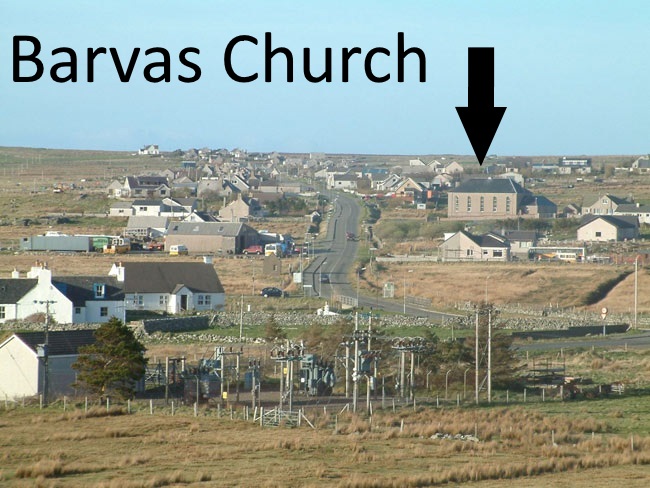
Barvas Free Church and the village
Where Did the Crowd Come From?
On this same evening there were one hundred young people at a dance at the parish (county) hall. During their dance God suddenly fell upon them (right at the time the young man was praying in the aisle of the church). The music at the dance hall stopped, and the young people, being overcome by conviction of sin, fled the hall as if they were “fleeing from a plague,” and they made their way to the church.
In addition to these 100 young people, there were hundreds more who had already been in bed but simultaneously, without any explanation, got out of bed, dressed themselves, and went running to the church.
A hunger and thirst for God overwhelmed the people in the area. In the church the gathered crowd began singing Psalms. The church that would seat over 800 was packed. People in the aisles and in the pews were on their knees, crying out for God to have mercy.
That meeting continued till 4 a.m. There were no altar calls nor appeals to accept Christ. It was just a sovereign work of God. Several of those saved that night became ministers.
At 4 a.m., as Duncan Campbell was leaving the church to go to the parsonage where he would spend the night, someone approached him and asked him to go to the police station, as there were at least three hundred people that had gathered there.
During the one-mile walk to the police station, he saw people all along the road, kneeling and crying out to God in repentance, pleading for mercy.
Upon arrival at the police station, Duncan Campbell didn’t preach a sermon, but the crowd that had mysteriously gathered themselves there were crying out to God for mercy due to the overwhelming conviction of their sins that they were experiencing.
Many of those assembled had come in buses from locations up to twelve miles away. When asked why they had come there, they didn’t have an answer. They just said they had a hunger in their heart to go to the village of Barvas (where the church was located).
Why did they assemble at the police station? Some speculate that the sergeant was a very godly man. Others said that the cottage of Peggy and Christine Smith was next to the police station, and that produced a magnetic drawing power.
Duncan Campbell’s Second Night at the Church
On the second night of Duncan Campbell’s ministry at the Barvas church, people from all around the island of Lewis came in buses, and the church was packed out. Some fell under severe conviction of sin on their way there and were converted before they arrived at the church. During Campbell’s sermon people were crying loudly all over the sanctuary, burdened by the weight of sin.
Five Weeks in One County
This level of ministry continued in the county for five weeks before it spread to adjacent counties. Duncan Campbell would commonly preach four to eight sermons per day, in churches as well as in open fields and along the shoreline. Some services were scheduled as late (early) as 3 a.m.
In Mary Peckham’s book, Sounds of Heaven, she indicates that in December 1949 the revival was already underway. By January and February, it had already started spreading out from Barvas to Carloway, Ness, Arnol, Leverburgh, Kinloch, Harris, and other locations.
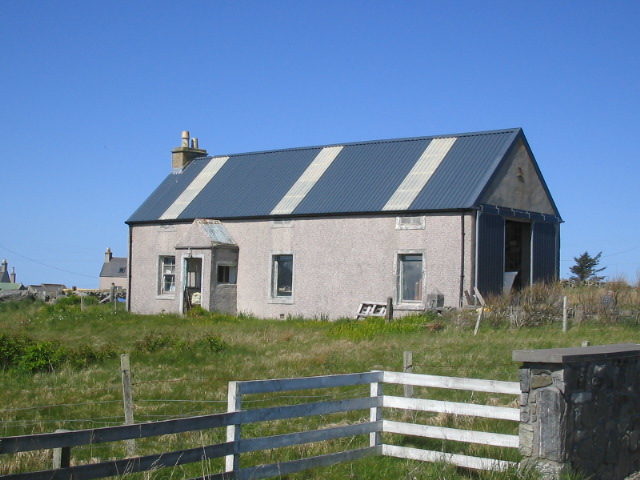
The House that Shook
The Parish of Arnol
After the five weeks in Barvas, the revival began spreading to other towns, and what happened in Barvas happened in other places—with the Holy Spirit’s power increasing.
In the village of Arnol, because of the bitter opposition from other Christian ministers, the leaders of a local church who were in favor of the revival knew all they could do was pray. Thirty of them, together with Duncan Campbell, went to a local farmhouse and began interceding.
At about midnight, Campbell told a man in that farmhouse that God wanted him to lead in prayer. That man then prayed for about 30 minutes straight, then paused, looked up to heaven and said:
God, do You know that Your honor is at stake? You promised to pour water on the thirsty and floods on the dry ground, and God, You are not doing it. There are five ministers in this meeting, and I don’t know where a one of them stands in Your presence, not even Mr. Campbell. But if I know anything at all about my own poor heart, I think I can say, and I think that You know, I stand before You as an empty vessel, that I’m thirsty! Thirsting for Thee and for a manifestation of Thy power. I’m thirsty to see the devil defeated in this parish (county of Arnol). I’m thirsty to see this community gripped as You gripped Barvas. I’m longing for revival and God, You are not doing it! I am thirsty, and You promised to pour water on me.
Then after a pause, he said, “God, Your honor is at stake, I now take it upon myself to challenge You to fulfill Your covenant engagement!”
With that the granite house “shook like a leaf.” A jug on a sideboard fell onto the floor and broke. The dishes on the dresser rattled. Then, as Campbell testified, “wave after wave of divine power swept through the room.”
At that exact moment the Spirit of God swept through the village and people were awakened from their sleep, got dressed, and made their way to the church—crying out for God to have mercy.
Donald McPhail, a 16-year-old from Arnol, was converted that night. It is believed that more souls were brought to Christ through his prayers than through the sermons of all the ministers on the island. Sometimes he would be asked to pray, and he would mention but one word, “Father,” and everyone would melt into tears.
At another time, during a sermon, Campbell was struggling with the spiritual opposition to his message, so he stopped his message and asked Donald to pray. After a very brief prayer the Spirit of God swept into the building and the people were overwhelmed by the presence of God.
So overwhelming sometimes was the presence of God that people were afraid to open their mouths lest they utter words that would bring judgment upon themselves.
During the Revival
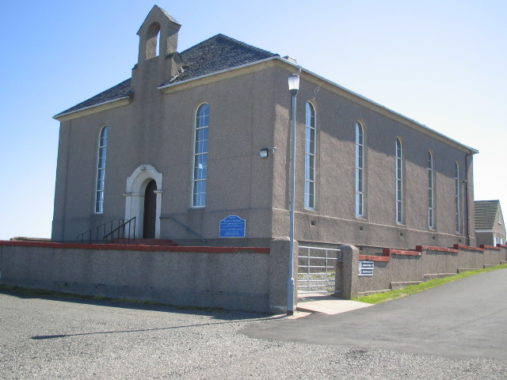
Barvas church
►People walking up to the church services went silent. There was no talking as they entered the church and sat down. The presence of God created a fear, and it was so real that some said it sent shivers down their spines.
►Not long after being seated in the church, people would begin weeping. For some, the tears were due to an overwhelming love of God. For others, it was due to the conviction of sin.
►The singing was of the Psalms only. No instruments were used. The singing was by the congregation only (no solos, duets, quartets, or choirs). The language used was Gaelic.
►Some testified that they were drawn to the services by the power of God, against their will.
►The drawing power of God blanketed the island of Lewis. This power created a longing for God, a hunger for His Word, and an overwhelming conviction of sin—leading many to accept Christ as their Lord and Savior.
►People didn’t want to depart from the church services.
►Preaching was not diplomatic, tickling people’s ears; it was prophetic, using the law to illuminate and condemn sin, and using grace to point people to Christ.
►During sermons Duncan Campbell would often have to stop preaching because of the distress manifested by those who were being convicted.
►One man under deep conviction of sin testified, “So awful was the sense of God’s presence, that even the grass beneath my feet and the rocks around me seemed to cry out ‘Flee to Christ for refuge!’”
►Following church services there were always several homes in the village that would be opened wherein those seeking God could go for further spiritual instruction, and these homes were almost always packed. The atmosphere in these homes was similar to what was experienced in the church buildings—filled with the presence of God.
►People leaving the church carried with them the awareness of the presence of God. With that presence was the fear of God. When these individuals would come into contact with those not yet converted, those people would sense God, become fearful, and due to the tremendous conviction of sin, often become converted.
►Many had a very hard time sleeping because of the presence of God being so real. Day and night, whenever they woke up, the presence of the Lord was there.
►Normal work and activities were set to the side for people to get right with God and for Christians to share the Gospel with others.
Extraordinary Prayer Prolonged the Revival
►Similar to the intense prayer that gave Charles Finney evangelistic power, this revival was prolonged due to intercessors who never went to the church services. They were compelled by the Holy Spirit to focus their time in seclusion, interceding for souls.
►At noon every day, for about two hours, all work stopped as people gathered to pray. People working their fields or those weaving on the looms in their homes–everyone stopped to pray. There was no appeal made for prayer; people just met and prayed in their homes or at the church.
Opposition
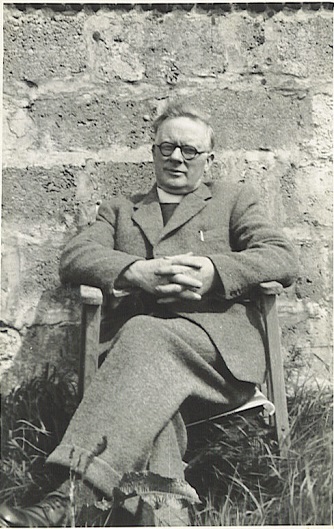
Duncan Campbell
As in all genuine revivals, bitter opposition came from other denominational church leaders who opposed Duncan Campbell. Due to their opposition, the revival passed by those denominational churches and they derived no benefit from it.
Local ministers brought other clergy members from the mainland of Scotland to conduct special services to oppose Campbell. Some ministers told their people not to attend meetings wherein Duncan Campbell was preaching because they didn’t think the revival was of God.
Opposition was due to:
► Campbell’s brown shoes. The ministers had traditionally worn black ones.
► Accusations developed surrounding finances. Campbell’s records revealed that he lived on a very low salary.
► Doctrine. The other ministers opposed his teaching on a subsequent filling or baptism of the Holy Spirit. This was not about speaking in tongues, as that was never heard during the revival. This was a baptism, or filling of power, like what Charles Finney, D.L. Moody, R.A. Torrey, J. Edwin Orr, and other revivalists experienced and taught.
Manifestations or Phenomena that Occurred
►The conviction of sin was overwhelming, and though some attempted to run from that conviction power, it followed them wherever they went, into bars and even across the channel to the mainland.
►There were prostrations. This is not what is commonly referred to as being “slain in the Spirit,” but prostrations due to the overwhelming presence of God (Daniel 10).
►There were times when large groups of people froze in place, and some appeared as though they were having epileptic fits. Duncan Campbell soundly declared that this was not demonic, but that it was the overwhelming presence of God resting upon people (Daniel 10).
►Many had visions that provided divine guidance that led to many people’s salvation.
►There were visions and trances, of which Duncan Campbell said “We dare not speak against them because we might be speaking against God.” Campbell also said we shouldn’t seek visions and trances, and that they were incidental. The focus should be on Christ and on the Word of God.
►Numerous people confessed to having heard angels singing, and it was from many different locations where this took place.
►Some saw demons flying out of the church buildings.
►One man testified that while praying in the church, he saw a white dove resting on people’s heads. The dove named the individuals one by one, and those who were named were all converted that night.
►The presence of the Lord would make your hair stand on end, and it continued day and night. That presence was pervasive and undeniable. It didn’t matter if you were a Christian or not, you could sense that fearful, awe-inspiring presence of God.
►One of the houses in the village of Arnol shook while people in it were praying.
►When leaving the church one night, out in an open field, a ship was seen by everyone there. It was a navy ship and it was shrouded in light. It was a vision, and it left everyone present mute. They couldn’t say a word.
►Some people, when walking along the roads, would be enshrouded in light.
► There were lights overshadowing some of the homes.
►Many sailors gave their testimony that while their ships were passing the island they would feel the presence of the Lord.
►The presence of God was also sensed on the islands of Harris, Bernera, Tiree, and North Uist.
Results
►Like what is common in every revival, many hymns were composed.
►When the news of the revival came to people of Lewis who were living in various places throughout the world they would come under conviction of their sins and give their lives to Christ.
►The hunger for the Word of God was intense. It was no longer read out of tradition or duty, but it became alive.
►Bars were empty.
►Many ministers and missionaries received their calling.
►How many were saved? There was a fear to count the converted, as ministers didn’t want to fall into David’s sin of pride (1 Chron. 21:2). Though that was the general attitude towards counting converts, we did find one record that stated there were 20,000 converts during the first five weeks.
►Duncan Campbell indicated that 75% of those saved during the Hebrides Revival were saved before they came to church. That was similar to the 1904-1905 Welsh Revival.
►Old debts were repaid.
►Several police courts became idle, with no cases to try.
►How many backslid? According to Duncan Campbell, it was practically unheard of.
Sources
- Duncan Campbell by Wikipedia
- Flood on Dry Ground by Jessica Meldrum
- Hebrides Revival: a retrospective – video by the Sentinel Group
- Lewis Awakening by Wikipedia
- Mary Peckham Testimony – video at the Heart Cry Conference 2000
- Revival in the Hebrides (1949) compiled by Jim Meletiou
- Revival in the Hebrides – video (unknown source)
- Revival on the Island of Lewis audio sermon by Duncan Campbell
- Saved in Revival – by Mary Peckham
- Sounds of Heaven – by Mary Peckham
- Testimony — by Donald McPhail
- The Hebrides Revival of 1949 – The Lewis Awakening – video by Revelation TV
- When God Stepped Down from Heaven by Owen Murphy
- When the Mountains Flowed Down sermon transcript by Duncan Campbell
- Wind of the Spirit; The Story of the Lewis Revival – video by Ambassador Productions
Return to List of Revival Stories
Chet & Phyllis Swearingen:
Office: (260) 920-8248
romans1015@outlook.com
Beautiful Feet
P.O. Box 915
Auburn, IN 46706

